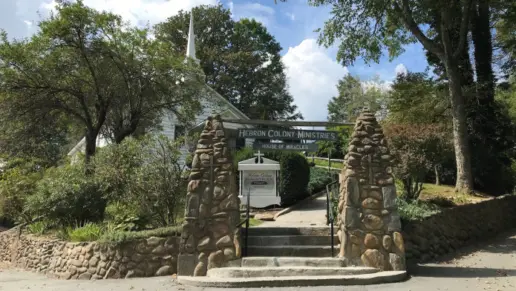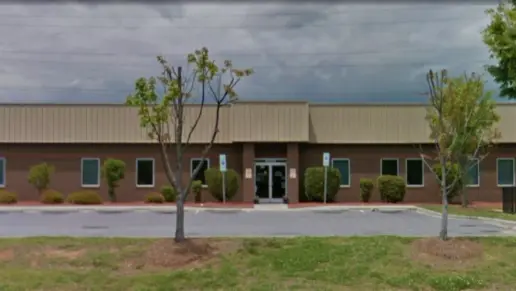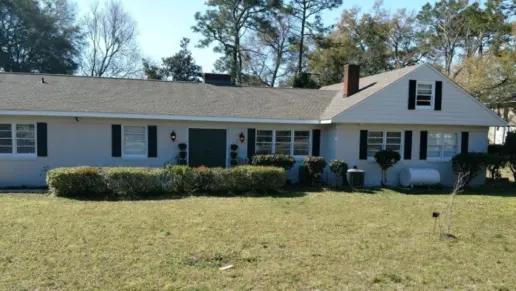About ACPP – Cornerstone Christian Center
ACPP–Cornerstone Christian Center is a faith based, 12 step focused drug and alcohol rehab for adult men in Gastonia, North Carolina. They offer long term residential care as well as aftercare planning and support. Their primary treatment modalities combine psychotherapy with recovery focused life skills training, including academic and work programs.
ACPP–Cornerstone Christian Center, in Gastonia, North Carolina, is a faith based, 12 step focused, residential drug and alcohol rehab for adult men. Specialized programming for young adults is also available.
The long term residential program at ACPP–Cornerstone Christian Center allows clients to focus on their recovery in a highly structured and supportive environment. The phased, step down approach allows clients to develop independent living skills to support their successful home, family, workplace, and community reintegration upon completion of the program. While in residence, clients engage in intensive, CBT based individual, group, and family counseling. The program also prioritizes spiritual development and requires daily, non-denominational Biblical study. Participation in extensive recovery focused life skills training, including wellness, coping, anger and stress management, and relapse prevention, is a condition of enrollment. Clients also receive academic support, including access to literacy and GED programs. Involvement in approved work programs is required after 90 days of residency.
ACPP–Cornerstone Christian Center is a nonprofit organization. Services are available at no cost contingent upon funding available and clients’ compliance with work requirements and program regulations.
Location
Location
Accepted Insurance
Other Forms of Payment
Addiction Treatments
Levels of Care
Treatments
The goal of treatment for alcoholism is abstinence. Those with poor social support, poor motivation, or psychiatric disorders tend to relapse within a few years of treatment. For these people, success is measured by longer periods of abstinence, reduced use of alcohol, better health, and improved social functioning. Recovery and Maintenance are usually based on 12 step programs and AA meetings.
There are many types of drug rehab in North Carolina. To receive treatment for addiction, you can choose from many inpatient and outpatient programs. Often, participants start with detox and work through a full continuum of care that continues with ongoing support for long-term recovery.
Opioid rehabs specialize in supporting those recovering from opioid addiction. They treat those suffering from addiction to illegal opioids like heroin, as well as prescription drugs like oxycodone. These centers typically combine both physical as well as mental and emotional support to help stop addiction. Physical support often includes medical detox and subsequent medical support (including medication), and mental support includes in-depth therapy to address the underlying causes of addiction.
Substance rehabs focus on helping individuals recover from substance abuse, including alcohol and drug addiction (both illegal and prescription drugs). They often include the opportunity to engage in both individual as well as group therapy.
Programs



Clinical Services
Cognitive Behavioral Therapy (CBT) is a therapy modality that focuses on the relationship between one's thoughts, feelings, and behaviors. It is used to establish and allow for healthy responses to thoughts and feelings (instead of unhealthy responses, like using drugs or alcohol). CBT has been proven effective for recovering addicts of all kinds, and is used to strengthen a patient's own self-awareness and ability to self-regulate. CBT allows individuals to monitor their own emotional state, become more adept at communicating with others, and manage stress without needing to engage in substance abuse.
Group therapy is any therapeutic work that happens in a group (not one-on-one). There are a number of different group therapy modalities, including support groups, experiential therapy, psycho-education, and more. Group therapy involves treatment as well as processing interaction between group members.
In individual therapy, a patient meets one-on-one with a trained psychologist or counselor. Therapy is a pivotal part of effective substance abuse treatment, as it often covers root causes of addiction, including challenges faced by the patient in their social, family, and work/school life.
Life skills trainings involve all the skills a person must have in order to function successfully in the world. These include time management, career guidance, money management, and effective communication. Truly successful addiction recovery is based on the ability to not only live substance-free, but to thrive. Life skills teaches the practical necessities of functioning in society, which sets clients up for success in life, and therefore sobriety.
Amenities
-
Residential Setting
-
Private Setting
-
Day School
Contact Information
400 East 5th Avenue
Gastonia, NC 28054



